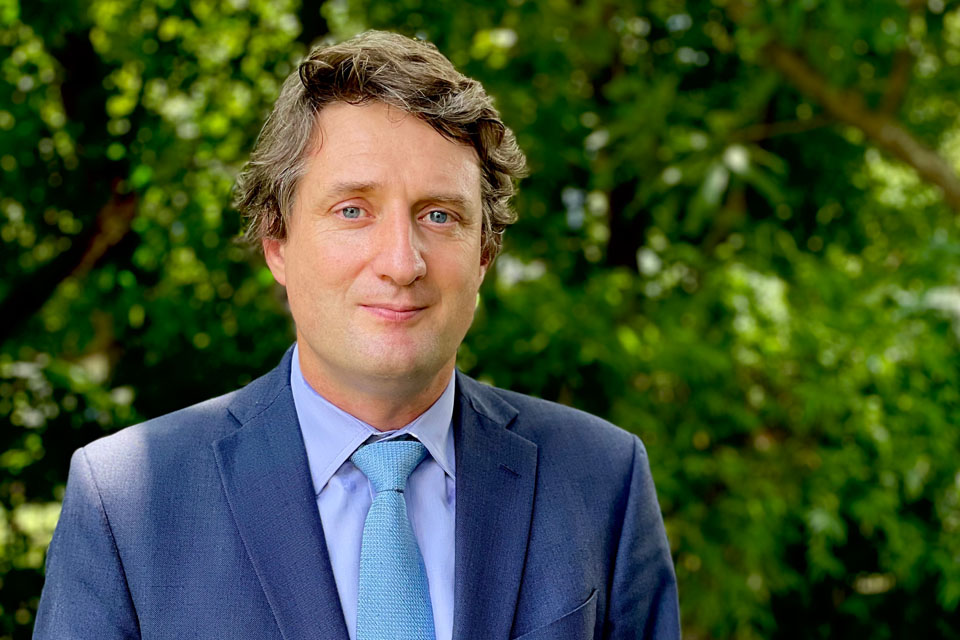UK statement at the 76th session of the UNHCR Executive Committee
UK statement at the 76th session of the UNHCR Executive Committee delivered by Rurik Marsden, Deputy Director Partnerships.

Thank you, Chair,
High Commissioner, thank you for your candor and openness.
Let me begin by expressing my gratitude for your leadership, today, and during the past decade - as you adeptly steered UNHCR through a whole range of challenges. We all, but in particular, people in need of protection, have been lucky to have you.
The United Kingdom also expresses its deep appreciation for the tireless efforts of all of your UNHCR colleagues.
We salute the values of humanitarianism and international solidarity they represent.
We honour those who have lost their lives in service.
And we reaffirm the UK’s unwavering support for UNHCR’s mission.
As my Deputy Prime Minister said recently at the General Assembly, the United Nations represents our collective determination for a better world.
The United Kingdom of Great Britain and Northern Ireland believes that the founding principles of the UN - and the work of UNHCR and others - remains absolutely essential.
That is why I want to address the notion that multilateralism is in crisis.
The system is under strain, but we reject the notion.
Instead, we see opportunity: to reaffirm our shared responsibilities, and to strengthen the international response to forced displacement.
We endorse UNHCR’s role in upholding protection standards.
We strive to protect lifesaving emergency response.
And we support concerted efforts to advance durable long-term solutions.
This includes recognising the dignity of forcibly displaced persons by helping them return home safely when conditions are appropriate and safe.
And strengthening partnerships to promote local leadership and resilience.
This is why the United Kingdom is committed to approving UNHCR’s programme budget.
We know this is not just a financial instrument but the foundation upon which UNHCR’s operational continuity depends.
But we need to also be candid that the current needs-based methodology, while principled in its intent to reflect the full scope of humanitarian requirements, does not enable effective prioritisation.
An honest picture of humanitarian need is essential - but we also in parallel need to understand UNHCR’s forecast of Member State contributions, and corresponding activity - which in turn will support more effective Member State governance and bring greater transparency to the difficult trade-offs that UNHCR is making.
In a shrinking financial landscape, the current approach limits strategic decision-making, making it harder to identify which operations are essential, which need to be scaled back, and where efficiencies can be found.
A more prioritised, outcome-driven model for 2027 would better support operational clarity and accountability.
Despite these concerns, the United Kingdom is clear – holding up the 2026 budget is not the solution – it would merely hurt those we are here to serve.
Which is why in the immediate term, we urge all Member States to support its adoption.
And as UNHCR finds itself focusing its activities in response to financial pressures, we must ensure that the most vulnerable people are not left behind.
Coordinated engagement is needed.
We believe development actors and IFIs must play a significantly larger role in fragile and unstable contexts to help break the cycle of extreme poverty and humanitarian need.
With over 70% of displacement crises now protracted and beyond five years, it is clear that short-term humanitarian responses alone are insufficient.
Instead, we need targeted assistance and support from development actors, host governments, IFIs and private sector to help fill the gaps left as the humanitarian system necessarily retreats.
We reaffirm our support to UNHCR’s sustainable responses initiative, which aims to build inclusive, supported, national systems.
We see this as part of a broader – but vital - reform agenda.
That is why we want to see UNHCR wholeheartedly embrace and implement the UN80, and Humanitarian Reset proposals, to modernise its approach and to remain relevant and effective.
We also commend UNHCR’s leadership on statelessness.
Ending statelessness is wholly achievable.
We are proud to be a founding member of the Global Alliance.
And we stand ready to work in partnership with others to realise this goal.
The United Kingdom remains a steadfast partner to UNHCR.
We must continue to act with unity, compassion and resolve.
Let us, in closing, therefore reaffirm our collective determination to those displaced.
And to the principles that underpin international protection.
Thank you.